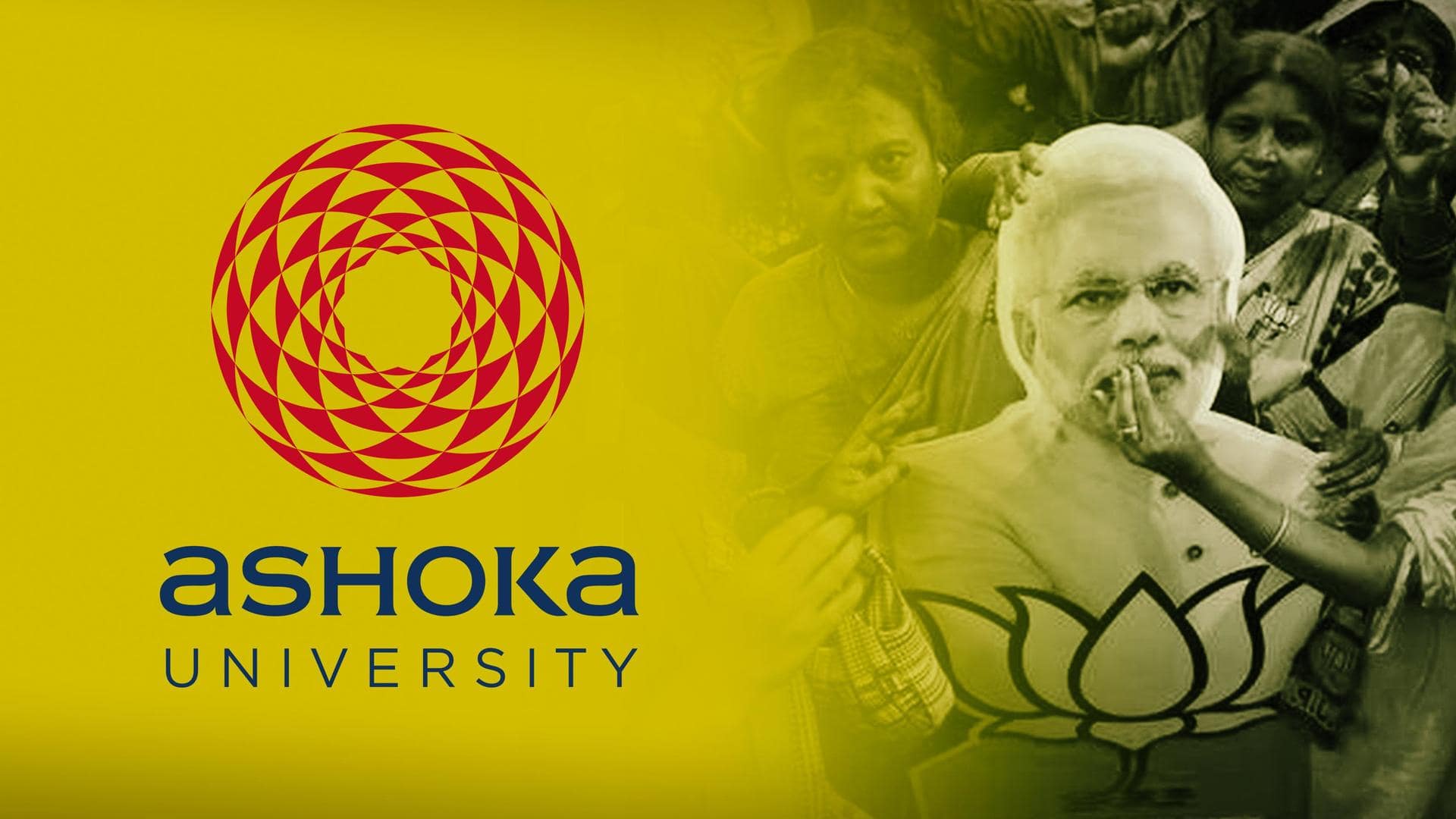
Political row over Ashoka University's research paper critical of BJP
What's the story
A research paper titled "Democratic Backsliding in the World's Largest Democracy" has put Ashoka University at the center of a political row. Authored by Sabyasachi Das, an Assistant Professor of Economics at the university, the paper hinted at possible vote manipulation by the ruling Bharatiya Janata Party (BJP) in the 2019 Lok Sabha elections. However, the university administration has officially disassociated itself from it.
Details
Paper reportedly highlights 'irregular patterns' in 2019 Lok Sabha elections
The paper documents "irregular patterns" in the 2019 Lok Sabha elections and identifies whether they are due to electoral manipulation or the incumbent party's ability to precisely predict and affect wins, per the Hindustan Times. "I compile several new datasets and present evidence consistent with electoral manipulation in closely contested constituencies and is less supportive of the precise control hypothesis," the study reportedly reads.
Claims
BJP allegedly manipulated win at local booth level: Author
While putting together an analysis, Das stated that the BJP's disproportionate win of closely contested constituencies is largely concentrated in states ruled by the party at the time of the election, NDTV reported. He claimed that the BJP manipulates the win at the local booth level, and concentrated on constituencies that have a high share of observers who are state civil service officers.
Row
Debate triggered on Twitter over controversial research
As soon as the report became public, it sparked political debate on Twitter. Senior Congress leader and MP Shashi Tharoor, as well as BJP MP Nishikant Dubey, are among those who have commented on the document, while the institution tries to distance itself from the row. According to university officials, the paper has yet to pass a critical review process.
Comments
Congress, BJP react to research
Tharoor called the study a "hugely troubling analysis for all lovers of Indian democracy," asking the Centre or the Election Commission to refute the arguments if they have any details on it. Dubey termed the research "half-baked," discrediting India's election process. "How can any University allow it? Answers needed-this is not good enough response," he tweeted in response to the university's post.
Twitter Post
Congress MP Tharoor calls it 'hugely troubling analysis'
This thread offers a hugely troubling analysis for all lovers of Indian democracy. If the Election Commission and/or the Government of India have answers available to refute these arguments, they should provide them in detail. The evidence presented does not lend itself to… https://t.co/intL81n9nH
— Shashi Tharoor (@ShashiTharoor) August 1, 2023
Response
'Dismayed by debate, views personal': Ashoka University
Meanwhile, Ashoka University said that any social media activity or public activism carried out by its faculty, students, or staff represents their personal opinion, not the university's stance. "We are dismayed by the speculation and debate around a recent paper by one of its faculty members and the university's position on its contents," it tweeted.
Poll